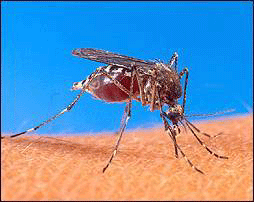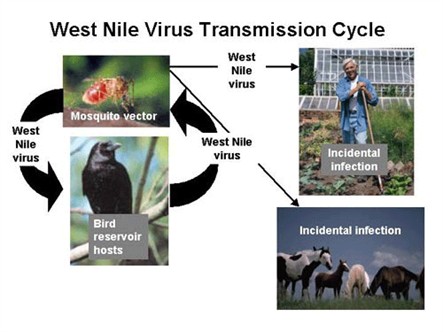We provide education on vector-borne diseases transmitted by mosquitoes.
When a female mosquito bites her host, she uses her saliva to prevent the host’s blood from clotting. Mosquito saliva can cause severe skin irritation for some people through an allergic reaction. Mosquito saliva can also carry disease pathogens to humans and animals like protozoans (Malaria), nematodes (heartworm), and viruses (West Nile virus). The viruses that mosquitoes transmit are called arboviruses.

Multnomah County Health Department
Arbovirus: An arbovirus is a virus that is transmitted from a blood-sucking arthropod (i.e. insects and ticks) to humans or other animals. Arboviruses have complex transmission cycles that involve a primary vertebrate host (where the virus multiplies) and a primary arthropod vector (how the virus gets to one vertebrate host to another). Humans and domestic animals can develop clinical illness but are usually dead-end hosts, which means they do not contribute to the transmission cycle and cannot pass on the virus. Many people may not even know they are infected with an arbovirus. When symptoms do occur (2-15 days from the bite of an infected mosquito), they may include fever, headache, fatigue, dizziness, weakness, confusion, rashes, or muscle weakness. The most severe cases can lead to coma and death.

